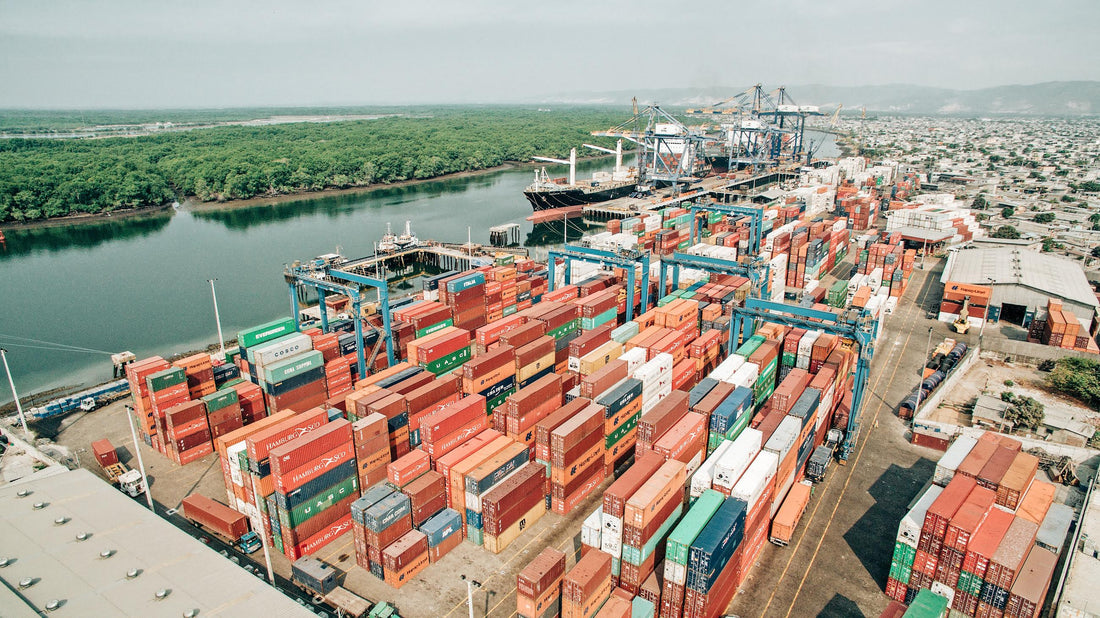In recent months, Brazil’s coffee export industry has been hit by significant delays at its ports, leaving containers stranded and shipments delayed. This isn’t just a logistical challenge - it’s a sign of broader issues within the country’s infrastructure that could have far-reaching consequences for the global coffee market. In this week’s update, we’ll dive into what’s causing these delays, why they matter, and what Brazil’s experience can teach us about navigating such challenges.
What's the problem?
Brazil, a leading exporter of coffee, is facing significant delays in its ports, which is impacting the flow of coffee to global markets. In March alone, nearly 2,000 containers were stranded, and over 600,000 bags of coffee failed to make their way out of the country, costing exporters approximately £1.3 million in lost revenue and additional fees. Santos, the port responsible for handling over three quarters of Brazil’s coffee exports, is particularly affected, with delays affecting more than 60% of vessels.
While this issue may seem like a logistical challenge, it highlights much broader problems in Brazil’s port infrastructure. The country’s ports are struggling to keep up with demand, operating at full capacity due to outdated technology and a lack of investment in maintenance. In 2024, Brazil allocated just 2.2% of its GDP to infrastructure, far below the 4% that is needed to meet projected demand in the coming decades. The result is a system that’s increasingly struggling to keep pace with the needs of Brazil’s agricultural sector, which accounts for a significant portion of the country’s GDP.
For coffee producers, this port bottleneck is just one piece of a much larger puzzle. Brazil’s coffee farmers are also contending with unpredictable weather patterns, including frosts, and the ongoing pressure of fluctuating global prices. On top of this, the country is experiencing a labour shortage that further complicates an already difficult situation. All of these challenges make the need for efficient, reliable ports more crucial than ever.
What does this mean for global coffee markets?
Brazil plays a vital role in global coffee trade, with its coffee prices acting as a benchmark for the wider market. When Brazil’s supply is impacted - whether by delays or other factors - it creates a ripple effect, driving up the C-price and leading to increased costs for roasters and consumers. This is particularly concerning in a time when coffee prices are already volatile, and producers across the globe are struggling with rising input costs.
A lesson from Vietnam?
Interestingly, Vietnam faced similar challenges in the early 2000s. But instead of letting these obstacles derail its coffee industry, the country took decisive action. By investing in its port infrastructure and improving logistics, Vietnam was able to streamline its coffee exports and increase its market share. Today, it stands as a model for countries facing similar challenges.
Brazil could take valuable lessons from Vietnam’s experience. With the right investment in modernising its ports, the country could reduce delays, improve efficiency, and continue to support its coffee industry as it grows.
The bigger picture
The issue of port congestion is significant, but it’s important to remember that it’s just one element of the broader challenges facing Brazil’s coffee industry. As the country continues to grapple with internal and external pressures, the global coffee market will need to find ways to support sustainable, reliable production while addressing systemic issues in the coffee trade.

